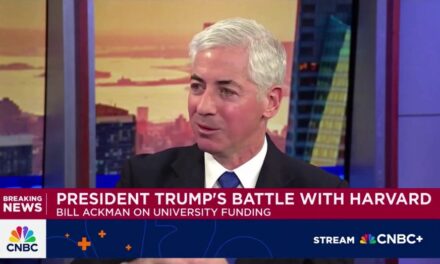The political landscape in the United States is often a rollercoaster of opinions and scrutiny, particularly surrounding the fitness of its leaders. In recent years, President Joe Biden’s mental acuity has come under intense examination, drawing criticism from various corners of the political spectrum. As White House Press Secretary, Karine Jean-Pierre has consistently found herself on the frontline, tasked with defending the President’s mental fitness against an array of concerns. Her responses not only reflect the administration’s stance but also reveal much about the ongoing dialogue regarding leadership capabilities in American politics.
The topic of mental fitness in politics is not new, but it has received renewed attention as Biden’s age has placed him in the spotlight. At 81, the oldest sitting president in U.S. history, questions about his mental sharpness, decision-making abilities, and overall health have become common refrains. Some critics argue that his age may impair his capacity to lead effectively, while supporters affirm that experience is invaluable. Jean-Pierre’s role has been pivotal in framing the narrative around these concerns.
Throughout her tenure, Jean-Pierre has employed several key strategies to address allegations about Biden’s mental fitness. One constant element in her responses is the emphasis on Biden’s public service record and his unwavering commitment to the American people. She often points out that his decades of experience in politics and governance, including serving as Vice President and Senator, are testament to his capabilities. Jean-Pierre’s presentations reinforce the idea that leadership is not merely a function of age but of experience and wisdom—a point that resonates with many Americans who value steadfastness and continuity in governance.
Jean-Pierre’s defenses also invoke the president’s working pace and engagement. She highlights Biden’s robust schedule, which often includes dozens of meetings, public events, and international negotiations. Such a hectic agenda is presented as proof of his vitality and capability. Her insistence on showcasing Biden’s active participation in critical discussions, whether regarding economic policies or foreign affairs, suggests that he remains sharp and engaged despite the concerns of critics. This strategy is aimed at countering narratives that question his energy and vigor, suggesting instead that his lifelong commitment to public duty serves as a foundation for his current role.
Another significant aspect of Jean-Pierre’s approach involves redirecting the conversation. Rather than solely addressing the concerns about Biden’s fitness, she sometimes pivots to highlight the accomplishments of his administration. When questions arise about mental acuity, she often responds with data and evidence regarding job creation, bipartisan legislation, infrastructure improvements, and other policy achievements that bolster the argument that Biden is effectively leading the country. This tactic attempts to shift the focus from perceived vulnerabilities to substantial policies that have had tangible impacts on American lives, thereby reinforcing his efficacy as a president.
However, Jean-Pierre’s defensiveness also reveals the precariousness of Biden’s position as president. The incessant questioning surrounding his mental fitness not only affects how the public perceives him but also influences how the administration operates in terms of communication strategy and policy announcement. The scrutiny has prompted the White House to become increasingly proactive in countering narratives that suggest Biden is unfit to serve, resulting in a carefully curated public image that seeks to balance transparency with the president’s dignity.
Furthermore, Jean-Pierre’s challenges are not limited to defending Biden’s mental fitness alone. She also faces questions about the broader implications of a president’s age on leadership dynamics. Critics from various political affiliations argue that age and potential cognitive decline could impact a leader’s ability to respond to crises, make informed decisions, and implement policies effectively. Jean-Pierre often navigates these complex discussions by referencing not just Biden’s accomplishments but also highlighting positive leadership qualities that transcend age, like empathy, resilience, and the capacity to unite diverse viewpoints. This reframing insists that effectiveness in leadership does not solely hinge on mental acuity but also on the empathy and connection one has with constituents.
The communication surrounding Biden’s condition exemplifies the delicate balance the White House maintains between addressing legitimate concerns and managing a public narrative. Jean-Pierre’s defense strategies underscore an anxious awareness of the potential for a credibility crisis—not just for Biden personally, but also for the administration as a whole. In this context, the question of mental fitness takes on a dual meaning: it is not only about an individual’s capacity to lead but also about the trust and confidence the public holds in the presidency as an institution.
As the political climate continues to shift, the challenges of addressing Biden’s mental fitness persist. Every polling cycle sees American voters expressing both concern over his age and approval of his policies. Jean-Pierre’s repeated defences reflect this difficulty yet maintain a hopeful tone, endeavoring to rally support around Biden’s leadership style and experience. While political opponents continue to focus on age-related critiques, the administration aims to build a narrative that prioritizes policy success over personal doubts.
As the 2024 elections approach, both Biden and Jean-Pierre will face intensified scrutiny. How they manage the discourse surrounding his fitness will model a significant aspect of the campaign. For the Biden administration, the task will increasingly involve demonstrating not only that he remains mentally fit to govern but that he is also a capable leader able to navigate the complexities of contemporary American issues. Both the achievements and character of the president will serve as critical focal points in the ongoing narrative shaped by Jean-Pierre and the broader White House communications team.
In conclusion, the ongoing dialogue around President Biden’s mental fitness raises important questions about leadership, age, and public perception. Karine Jean-Pierre’s role as the presidential spokesperson signifies the administration’s commitment to countering skepticism with facts, compassion, and narratives of success. As the future unfolds, the effectiveness of her defense strategies will undoubtedly play a crucial role in shaping the public’s trust in both Biden’s competence and the presidency itself. The stakes are undeniably high, as they navigate the difficult terrain where personal capabilities and public perceptions converge.































